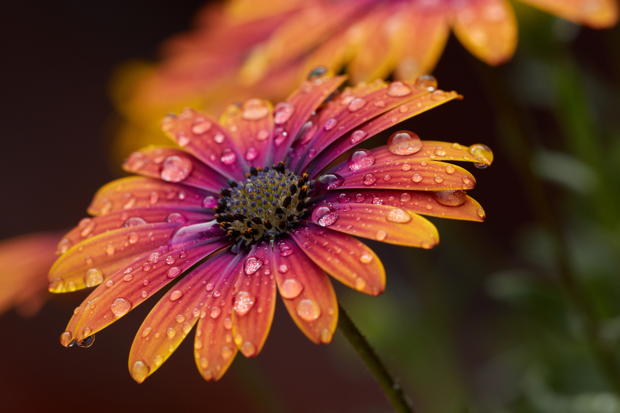
Remember in Catching Fire, the second story of the Hunger Games trilogy, when Katniss is back in the arena, on the brink of dehydration (and a long, dangerous way from fresh water), and a silver parachute drops into her camp? Tied to the parachute is a spile, a small metal tube used to draw sap from trees — except, the clever Katniss realizes, in the jungle it becomes a faucet for tapping water flowing through the tropical trunks. Far-fetched as it was, I loved that scene and have come back to it in more than a few dire moments, searching the sky for little parachutes, as it were.
The poems in the The Well’s summer poetry series have felt just like that spile to me. Each of the entries in this thoughtful collection by women has tapped something elemental and essential and life-giving in the midst of these strange days. These poems have indeed become tools for refreshing our souls. As I’ve read these artists’ work, I’ve had a sense that something more profound than reading was going on — more like communing — and that something beyond their work was being shared — more like their “8-pound female horse hearts,” as Ada Limón writes. That’s what good poetry does, it connects us. To one another, to creation, to the Creator. As David Whyte says,
In the silence that follows
a great line
you can feel Lazarus
deep inside
even the laziest, most deathly afraid
part of you,
lift up his hands and walk toward the light.
As this series started, Ruth Goring invited us into that silence, to contemplate great lines in curiosity and meditation. But, she didn’t leave at that ... all quiet and tea and roses. Goring anticipated our Lazarus and finished her invitation with this: “May all our contemplation open space for the Spirit’s holy fire.” The connections poetry affords awaken us, ignite life, draw us back into the light.
I recently encountered a clear instance of this poetry-ignited fire. Abigail Carroll’s poem, “Creed”, from her collection, Habitation of Wonder, served as an unexpected point of connection for several friends when we decided to each write and then share with the group our own version of Carroll’s declaration. For many of us, it was the first time we had attempted writing poetry. We gathered via Zoom to read and listen to one another’s work. While I have known many of those women for decades, to hear them read their unique and powerful statements of faith (“I believe it’s ok to savor a well-turned thank you note, but not ok to demand one”) was, like Shaw wrote, “a wildfire, licking the heads of locals, forming words.”
If you want to get to know someone better, ask them to tell you what they believe in 40 lines or less.
I do wonder if the economy of language poetry invites has been part of its healing appeal during the pandemic and the injustices it’s exposed. Fewer words, distillations of truth and beauty and, yes, lament amid the 24-hour news cycle of nations raging and kingdoms tottering. I also wonder if that’s why memorizing poetry seems so sensible right now (see 30 Poems to Memorize (Before It’s Too Late, edited by David Kern, for a good starting list); our minds need somewhere to go, somewhere to rest. A drink of water from a spile. As we keep seeking fresh water, maybe you’ll find words to write, or words to memorize, or words to drink in.
Photo by Macro Mama from StockSnap.